Ever since I got the Oura Ring, I’m able to track my deep sleep, heart rate variability and my resting heart rate in a more accurate fashion. Heart rate variability is the time interval between heartbeats. Typically, the higher the HRV, the better. The Oura ring is able to measure this by measuring your HRV while you are sleeping at the same time of the day, which makes the readings more accurate than other devices like the Apple watch or FitBit.
A lower resting heart rate during sleep is also associated with good recovery and health.
On normal days, my deep sleep, HRV, and resting heart rate are relatively good and consistent and my Oura Ring’s readiness score is not too bad. It’s not optimal because my weeks vary in terms of training and other activities.
What’s interesting is how alcohol affects my readiness score. In the past, I wrote about how drinking can destroy my sleep quality. Now that I am tracking my sleep with the Oura ring, it’s clear that even 2-3 drinks in the evening can affect my HRV and resting heart rate when I’m sleeping. Even when I drink those drinks 3 to 4 hours before I actually sleep and I feel 100% sober with no feelings of even a slight buzz, I wake up with a lower than ideal readiness score. A low readiness score is associated with me lacking deep sleep, a low HRV, and a higher resting heart rate.
This is a wake-up call for me to reduce drinking, especially binge drinking on weekends. Sleep is one of the most important things you can do for recovery of your mind and body and now that I can see how even light drinking can impact your sleep, I will put in more effort in more often staying alcohol-free.
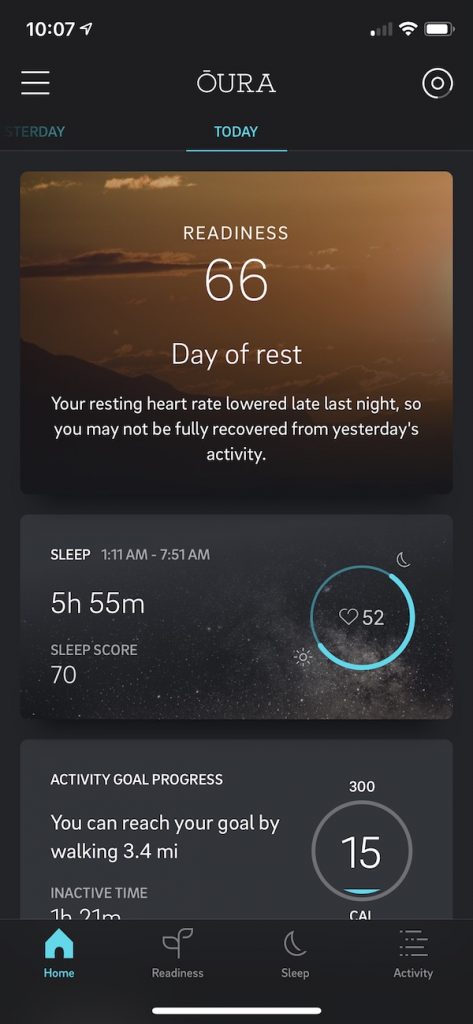
When my Oura ring registers more deep sleep, have a lower resting heart rate + higher HRV, I typically feel better and more rested that day. It may be the placebo effect, but whatever it is, trying to keep those numbers consistently good is the goal.
What I notice is when I drink earlier enough to sober up and fall asleep, my RHR and HRV are much better. What happens is if you go to sleep drunk or buzz, my HRV remains low as my RHR remains high. If I am able to sleep through the night and stay asleep it normalizes a bit towards the morning.
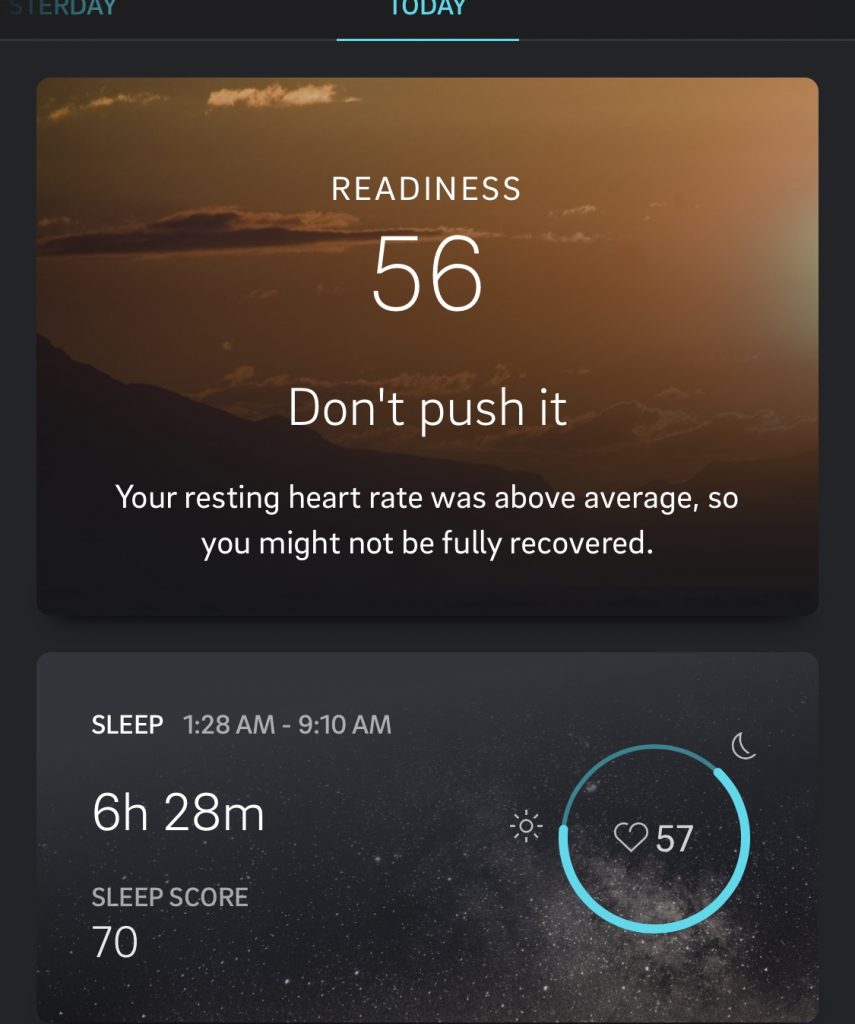
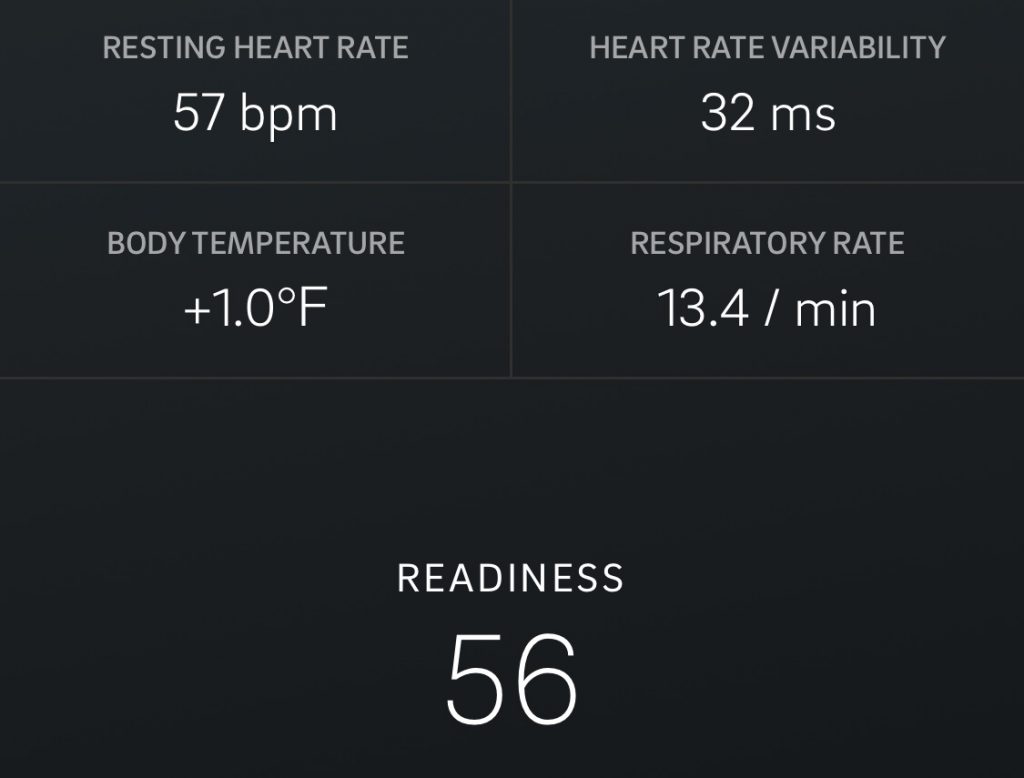
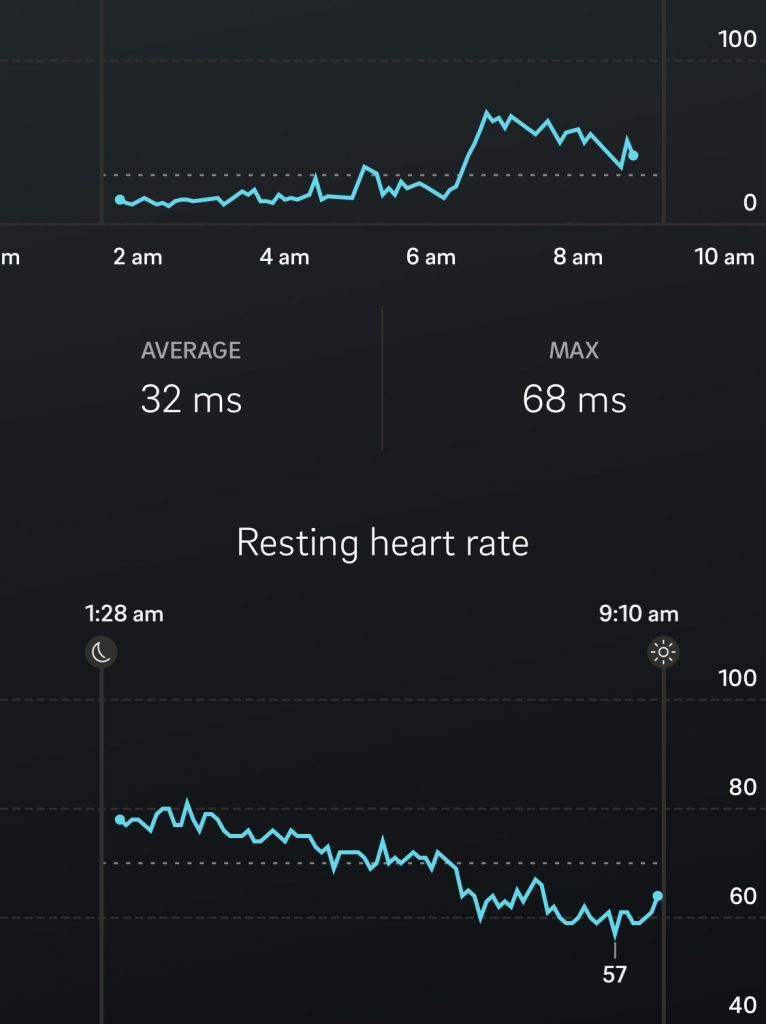
I have friends that swear alcohol helps them sleep. Unfortunately, they don’t know or care that the sleep quality they experience is lower when they use alcohol as a means to fall asleep faster. Personally, even when I drink small amounts before I sleep, I don’t feel as good as I would in the morning as I would have if I stayed 100% sober. I have taken note of these occasions hundreds if not thousands of times (I used to drink pretty regularly).
Peter Attia mentions how even 1 drink affects his heart rate and Oura ring score and is something he takes note of every time he drinks. It’s no secret that alcohol can have negative effects on your health. Study after study shows alcohol’s correlation with negative health outcomes, lower heart rate variability, and other multitudes of illnesses. Now with all the tools available to measure your heart rate and sleep throughout the day, you can see the effects of drinking alcohol in real-time.
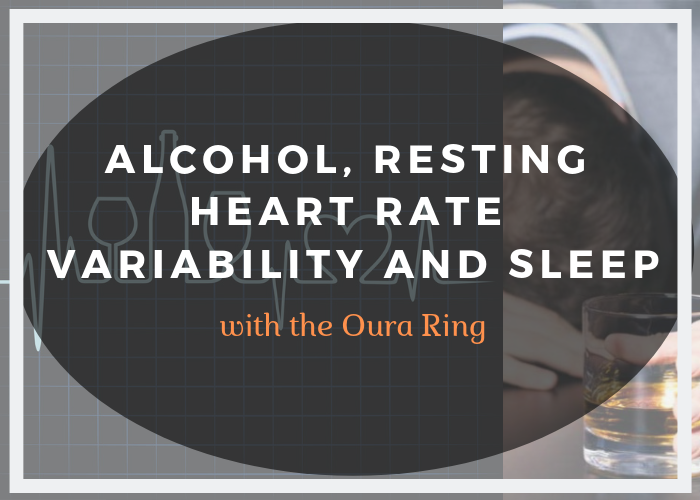
I would like to control my heart rate, can you please help me and tell me what must I eat or not eat or drink
There’s no magic bullet, reducing alcohol consumption and exercising a little bit every day is a start.